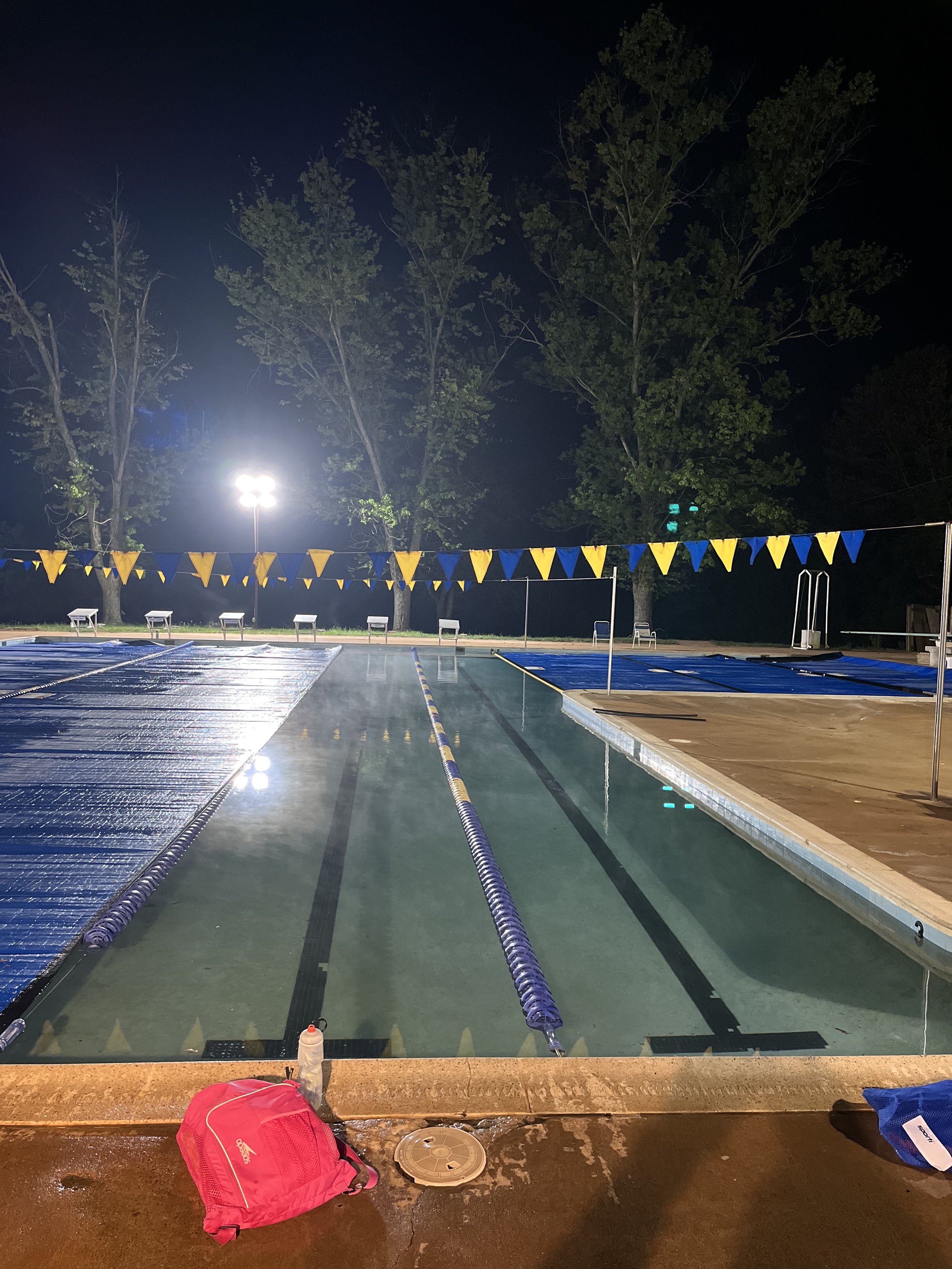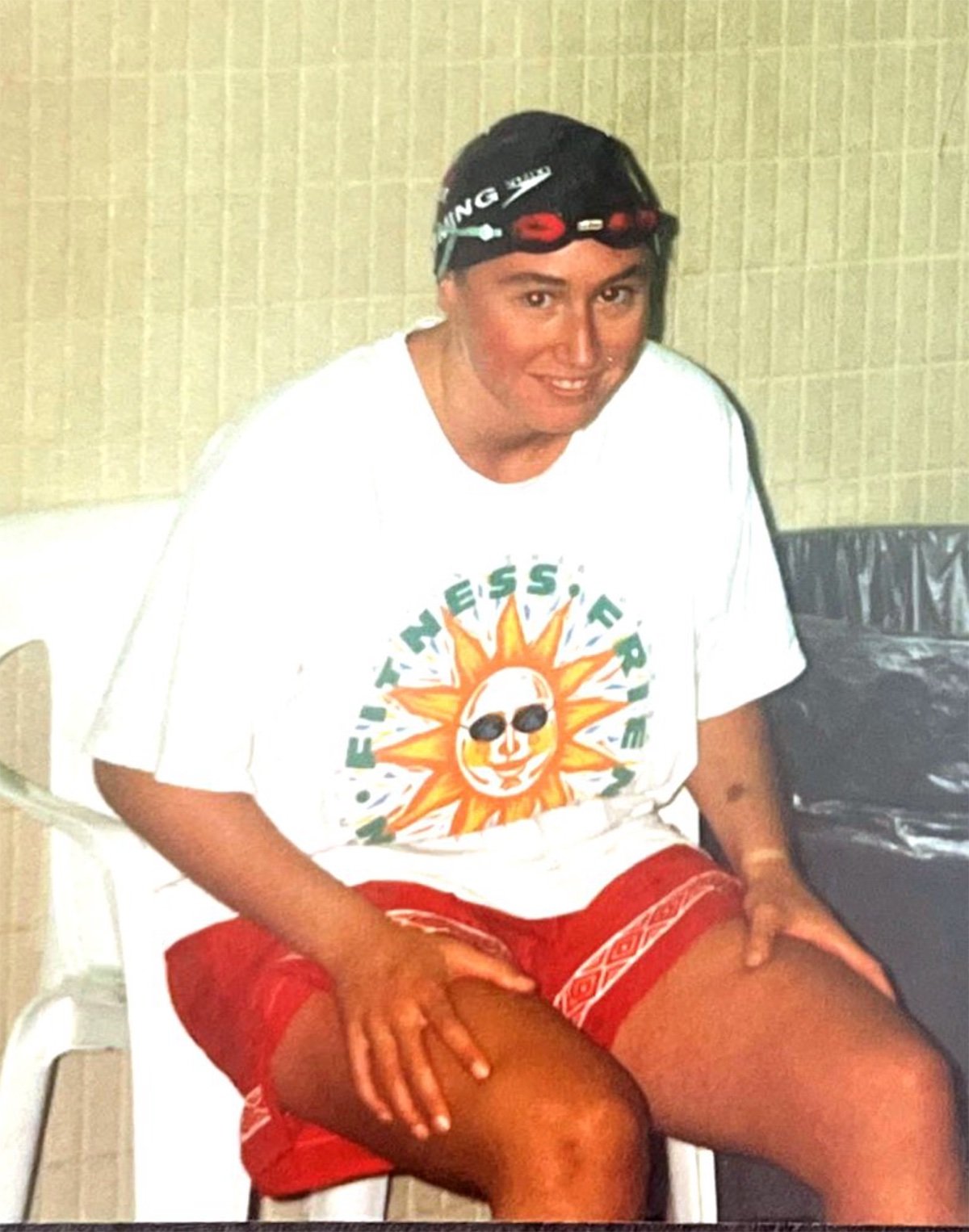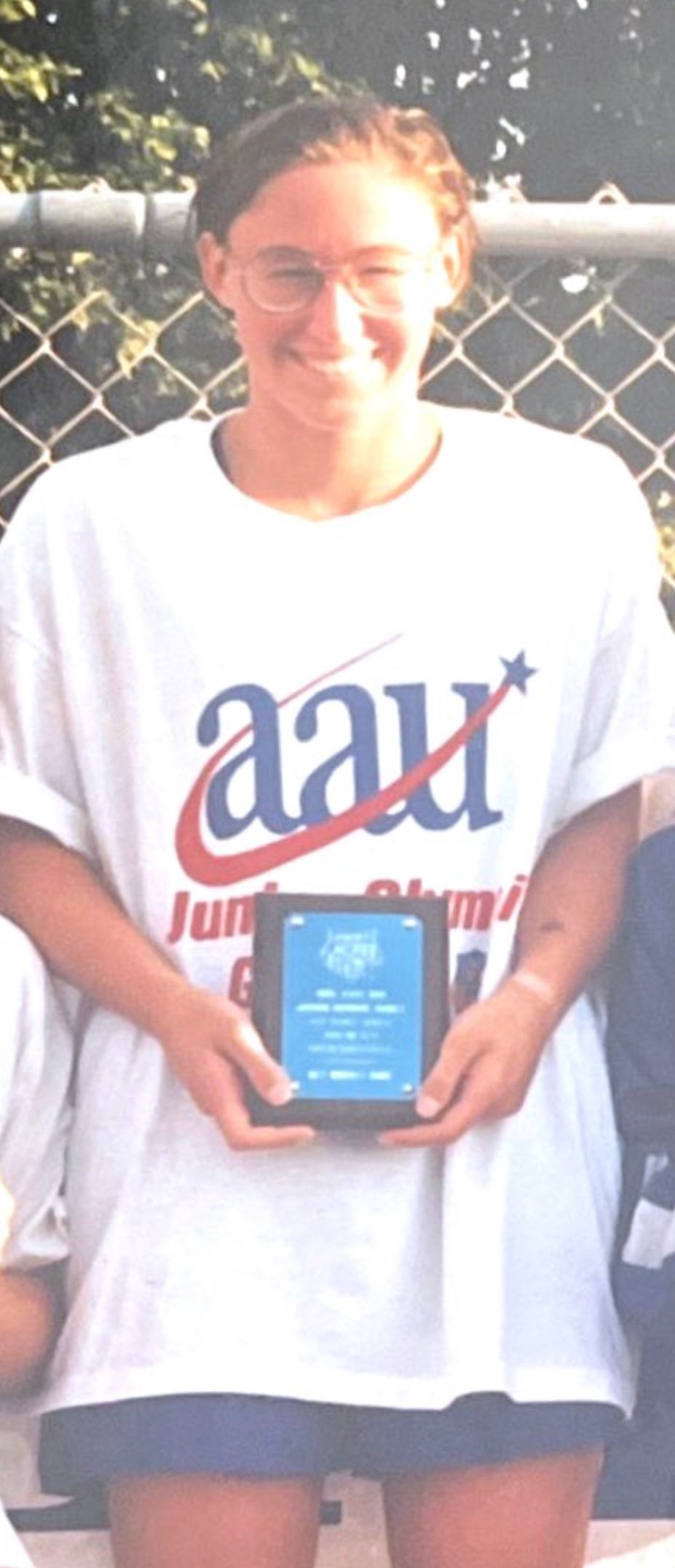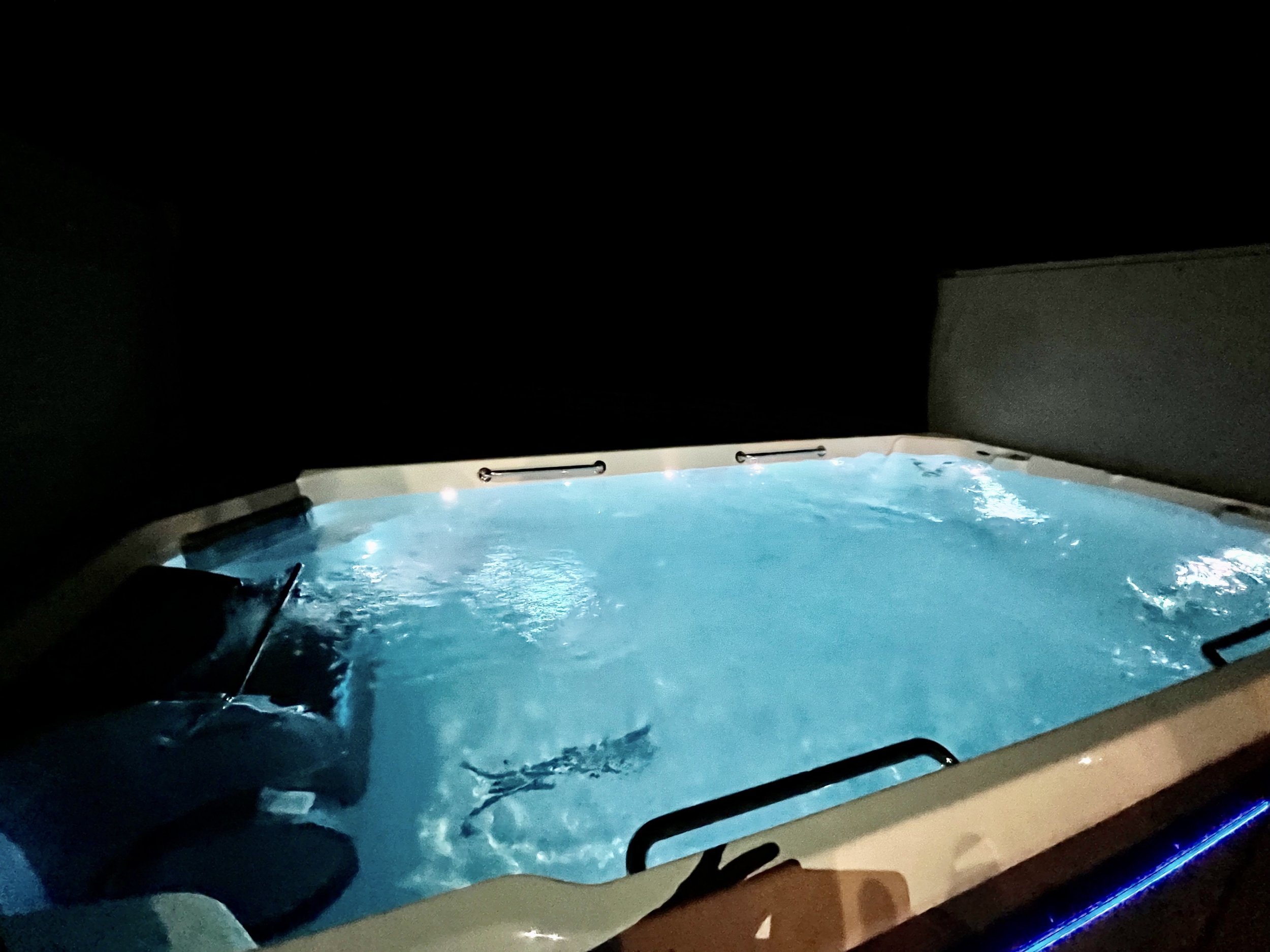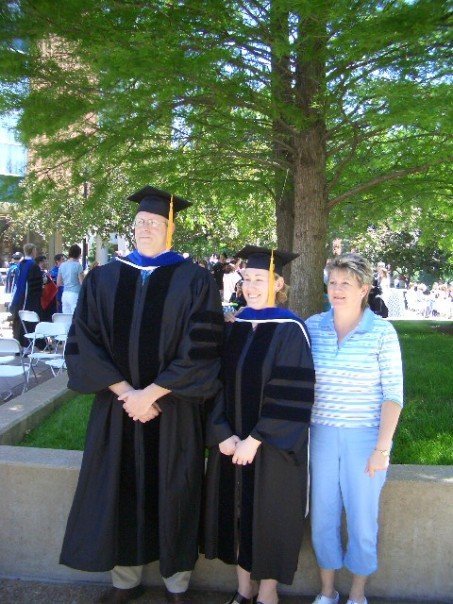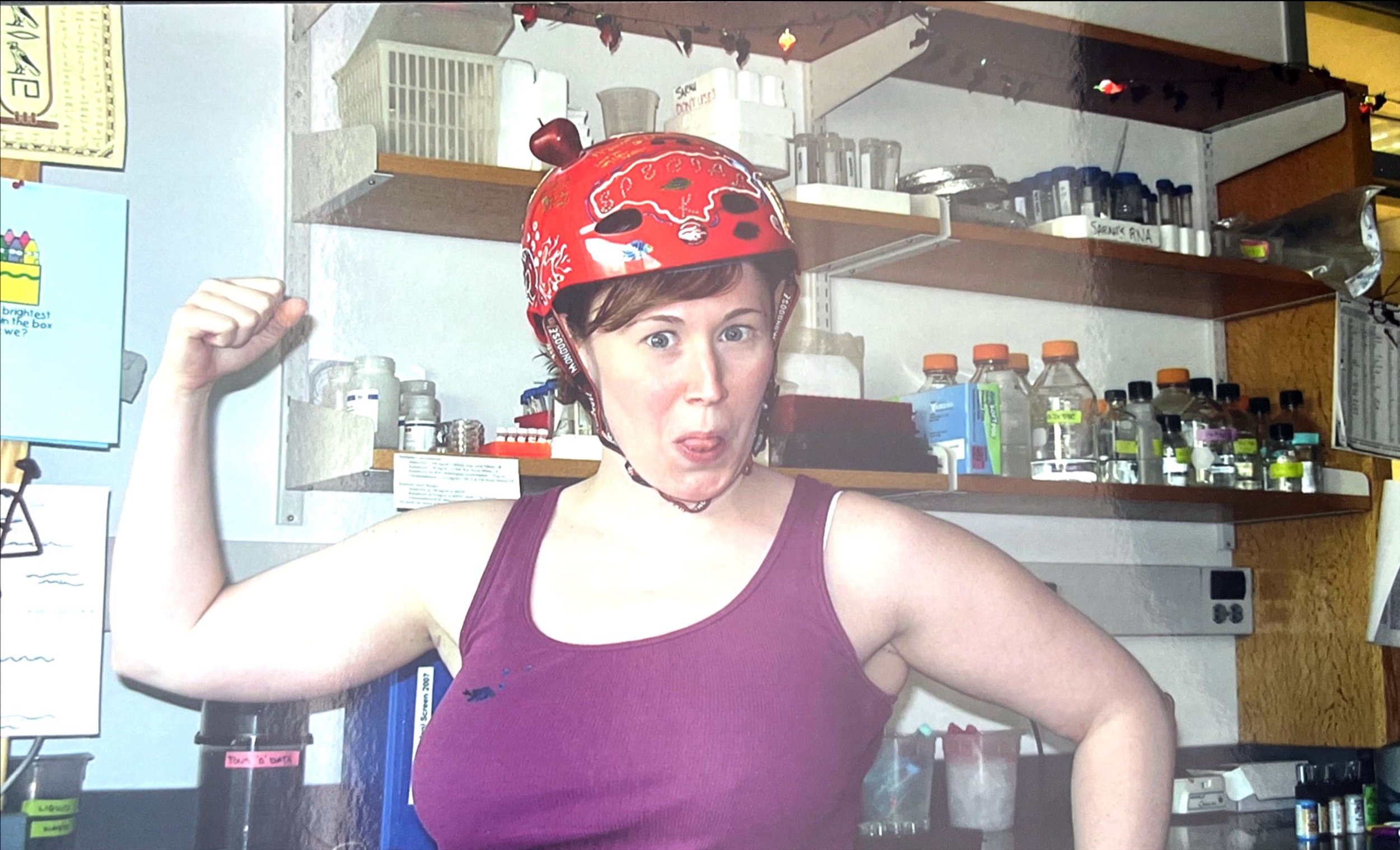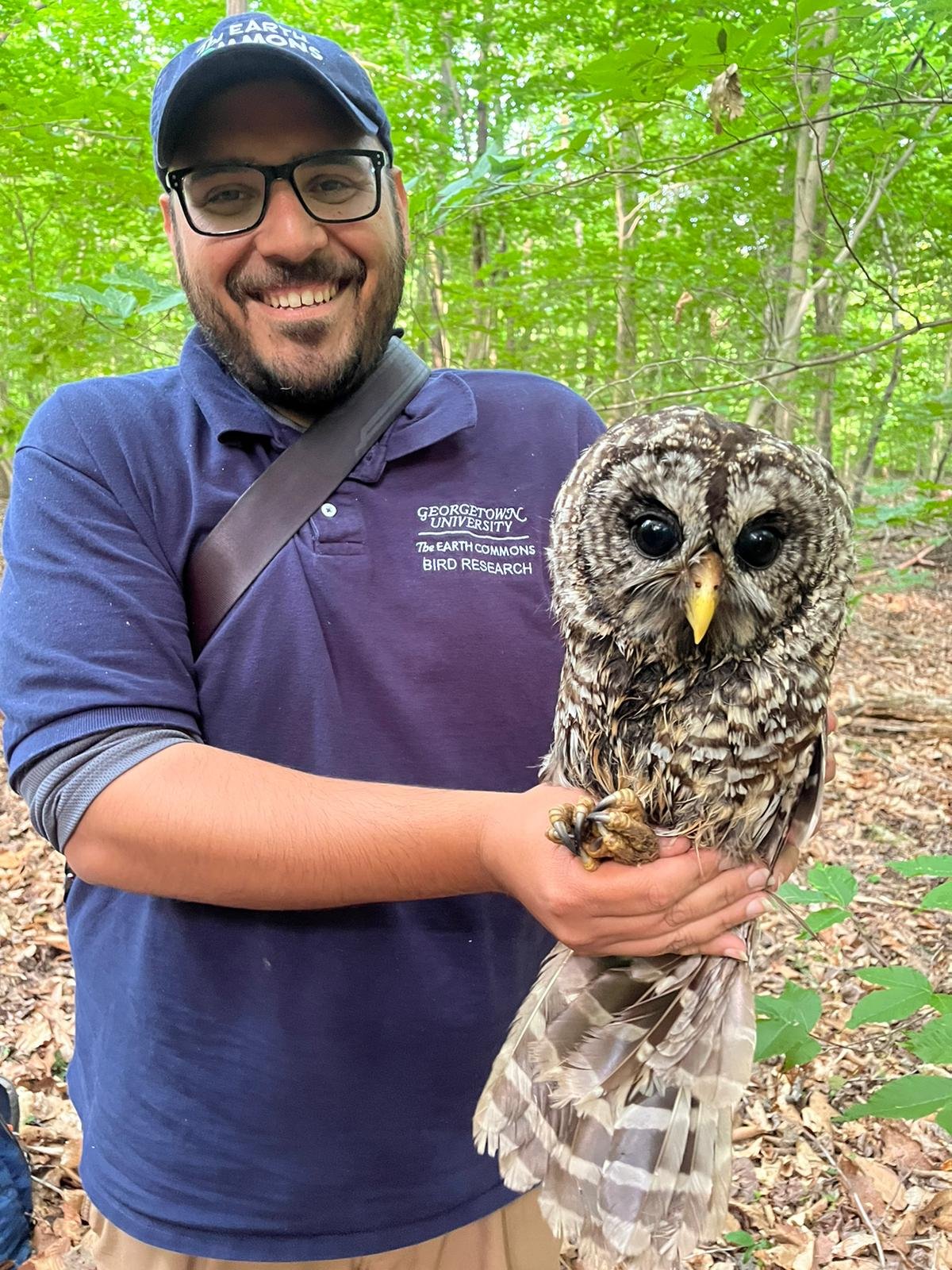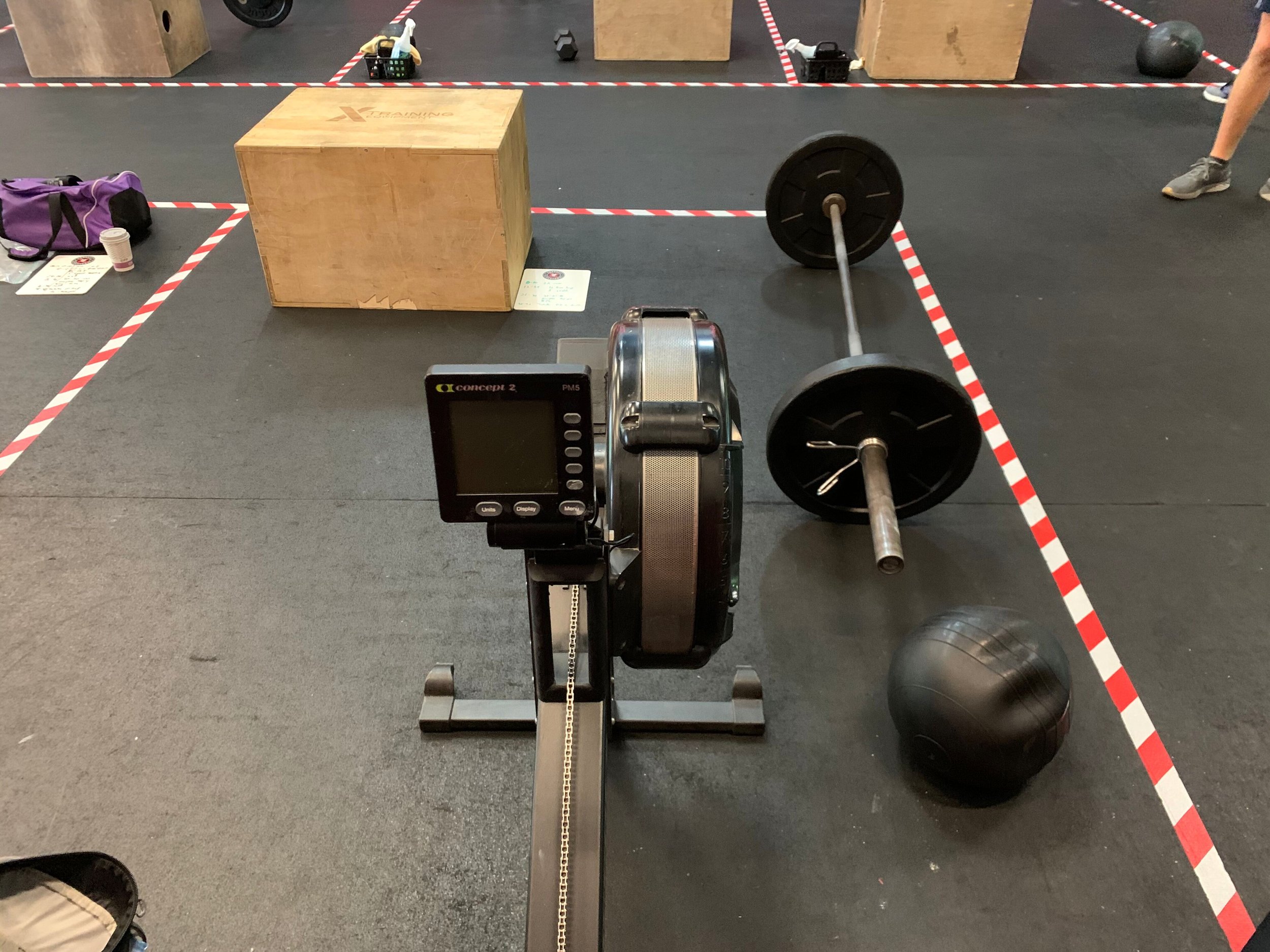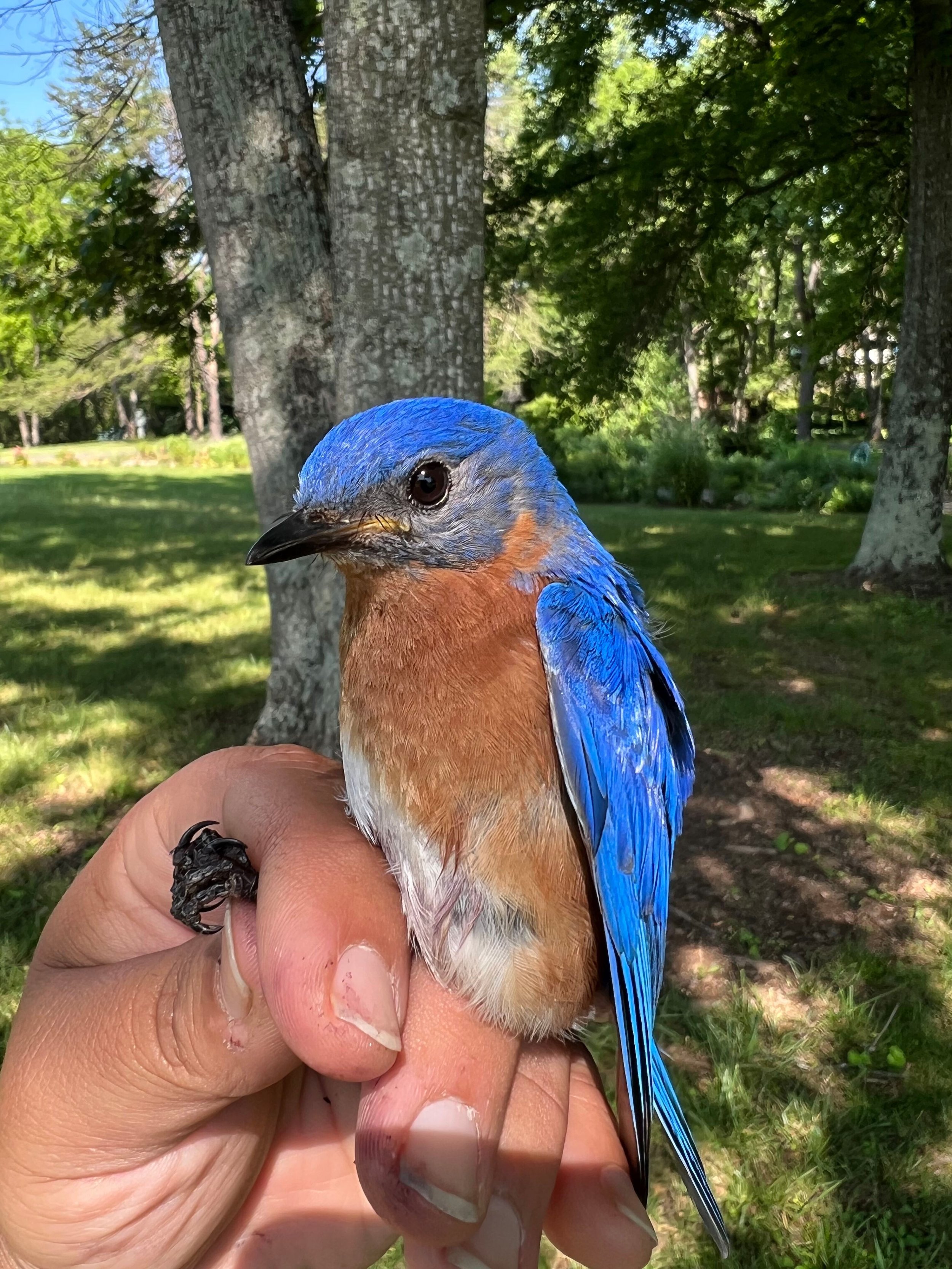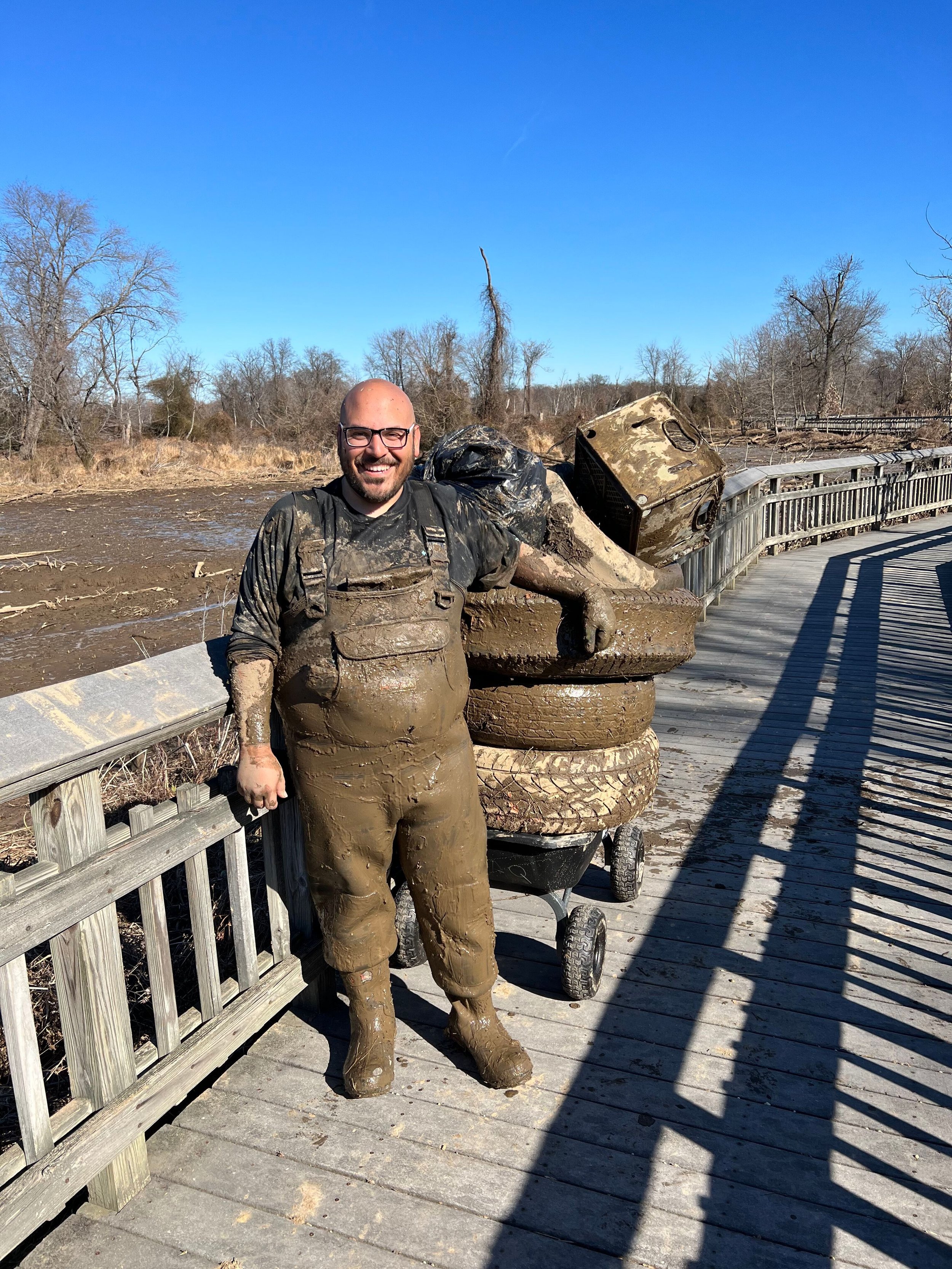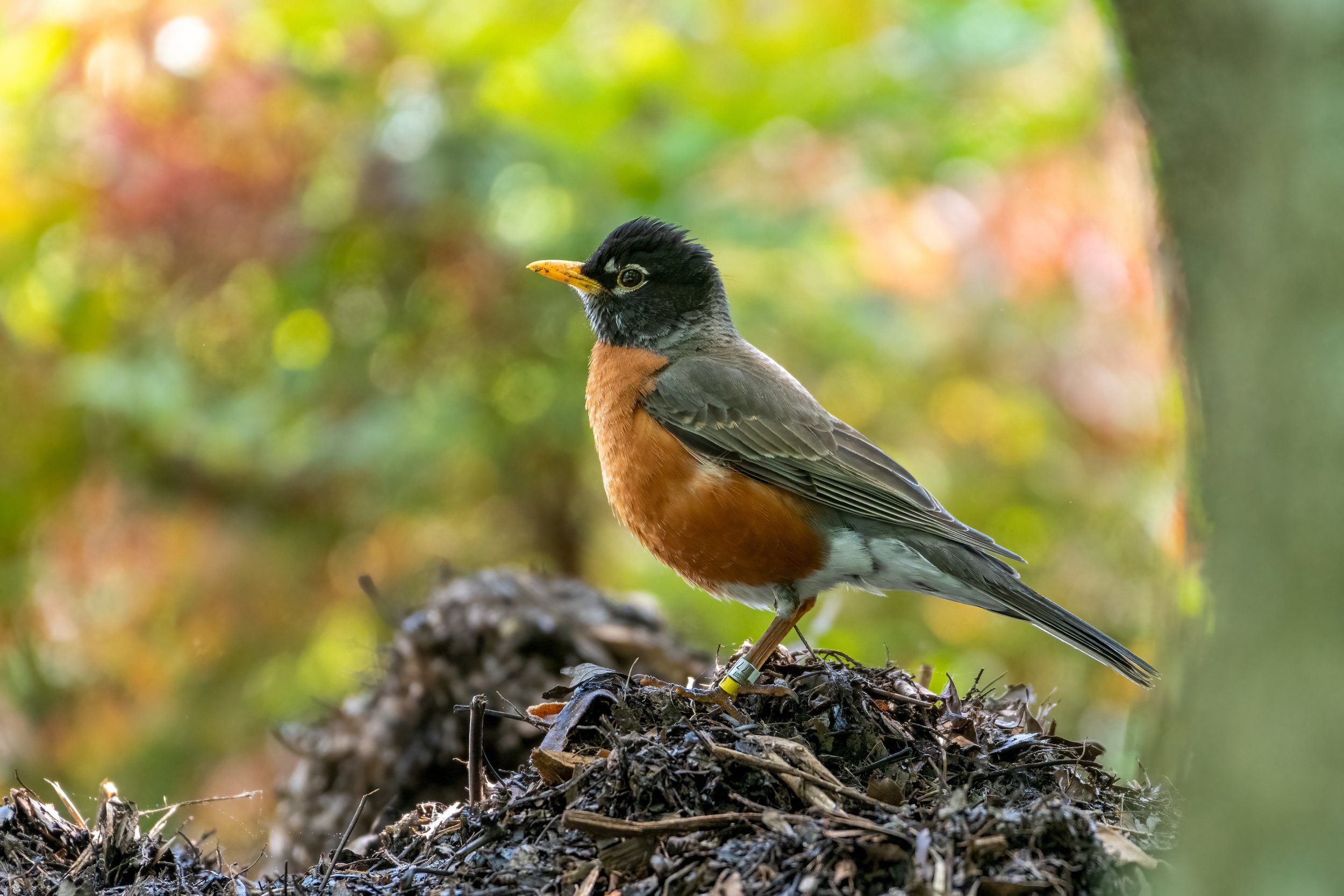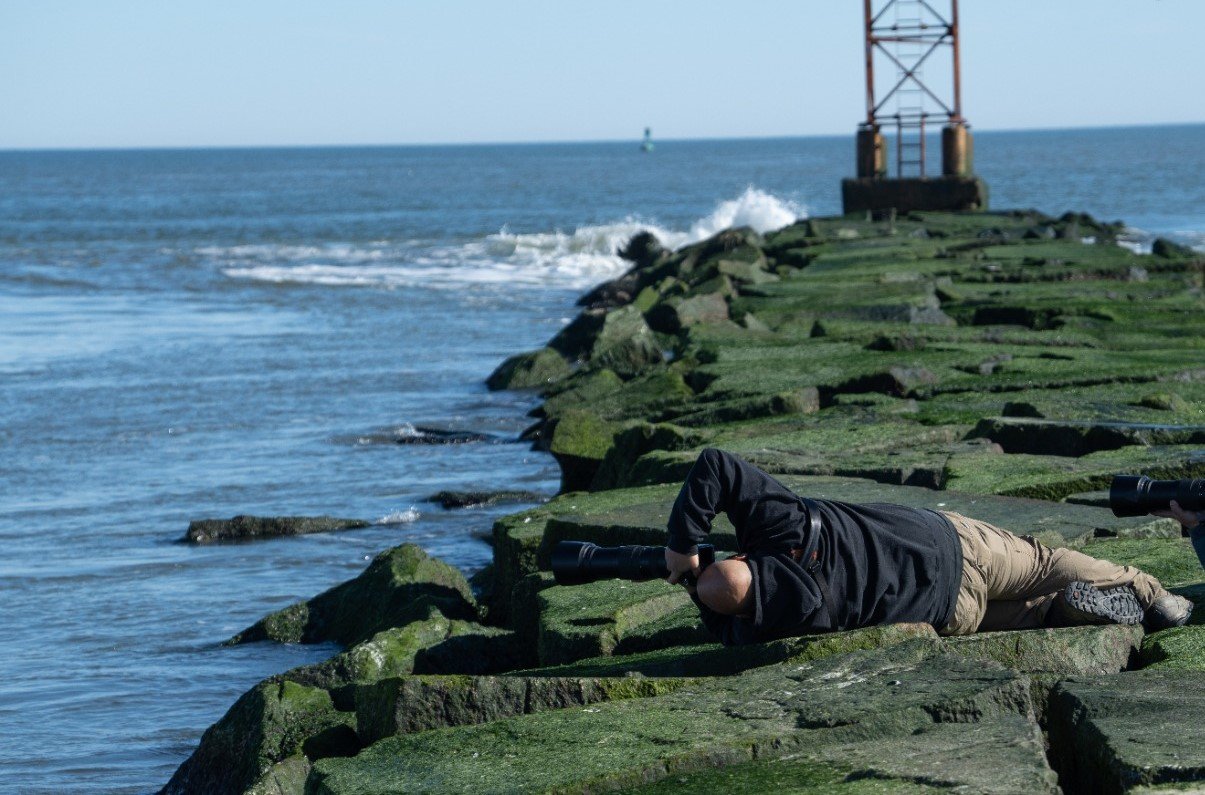Whether you’re in the lab or the field, not feeling like yourself sucks. In this week’s episode, both of our storytellers find a way to feel like themselves again.
Part 1: Some harsh words from Sarah Kucenas’ high school swim coach shake her confidence and she gives up her dream of being a pediatric neurosurgeon.
Sarah Kucenas is fascinated by the developing brain. Specifically, she and her research group study how glia act as engineers of neural development. Her long-term goal is to understand the mechanisms that mediate cellular interactions between neurons and glia and use this information to better understand how the human nervous system is initially sculpted, maintained, and behaves during disease. Sarah earned a B.Sc. in Biology from Valparaiso University in 2000 and went on to earn a Ph.D. in Pharmacological & Physiological Science from Saint Louis University with Dr. Mark Voigt in 2005. After Dr. Kucenas’ postdoctoral work with Dr. Bruce Appel at Vanderbilt University, she joined the faculty at the University of Virginia in 2009. Sarah has a 11-year-old daughter, Madelyn, 3 (VERY big) dogs, and is a life-long swimmer.
To listen to more stories from our UVA show check out the latest episode of HOOS in STEM.
Part 2: When Michael Herrera’s COVID turns into long COVID, he struggles to feel like himself until he starts birding.
Michael Herrera, PhD, is an atmospheric scientist, avid birder, and photographer. His work involves developing and implementing new methods for weather forecasting models, extending forecasts from the surface of earth all the way up to the international space station. He loves spending time outdoors, through birding, kayaking, or helping clean up the local marshes. After a prolonged battle with long COVID, he is rediscovering his curiosity and passion for everything the world has to offer.
Episode Transcript
Part 1
Mrs. Green looked at me and she said, “Uncoordinated and ungraceful.” She wasn't wrong.
She had had me in ballet classes for a few weeks and it was painfully obvious to her that I was never going to be a dancer. I didn't look like a dancer. My tutu was never straight and my hair was too wild to go up in a bun. And I didn't want to be a dancer. Most importantly, I think, like most six year olds with only partial brain myelination, I, in fact, was not coordinated.
But Mrs. Green's declaration released me from dance. To this day, I will never know why my parents decided on swimming as my next extracurricular activity. Neither of them were swimmers and, in fact, neither like the water at all. But a few days later, I found myself underwater.
At six, jumping into a pool with no idea how to swim, let alone stay afloat, it's hard to explain the feeling. It just felt right. I loved the silence that I would feel when my head would go under the water and my arms and legs actually moved with a precision and rhythm that I didn't even know I had. So at age six, I was taking swim lessons. By age eight, I had joined a year round team. And at age 10, I started swimming competitively. Swimming was very quickly becoming who I was. I was addicted to it.
I loved the way that it was a way to shut off the day at the end. My brain would silence when I was under the water. And I loved the physical push, the idea that I could train to be more efficient and faster and better and that those aching muscles were actually a sign of growth.
At the same time that this kind of happening was happening in the pool, I was doing well at school and I was stretching those muscles. As a sixth grader, I was in grade level math but was put in algebra because I was doing so well. I was honored to be asked to serve on my school Science Olympiad team. So all of these successes were kind of coming together.
The culmination of that year was that I also achieved my first national cut to a swim meet. So things were going really well. Swimming was teaching me that hard work paid off and that I was capable of really difficult things.
Sarah Kucenas shares her story at University of Virginia in April 2023. Photo by Dan Addison.
At 16, I bought my first car, a baby blue 1984 Chevrolet Sundance with no AC, but it was my chariot to and from school and practices. I was doing twice a day training, weights, taking AP classes. And unlike my friends who were dealing with acne and breakups and fights with their parents, I was exactly where I wanted to be. I was excited about next steps in my life. I wanted to swim as a division one swimmer and pursue my dream of becoming a pediatric neurosurgeon.
A chance encounter in elementary school, meeting someone's parent where she was describing to us why she studied kids’ brains and somebody in the room asked, “Why do you study kids’ brains?”
And she said, “Because they're not the same as adult brains,” and that stuck with me. I was fascinated by this concept of developmental neuroscience.
A few months later, I was in an evening practice. It was late, past 8:30, and Jack my coach had just given us our last set, eight 200 yard stroke with virtually no rest. It was meant to be intense. He had actually put trash cans behind the lanes and I had personally puked at least twice.
The set was tough. Actually, it sucked. I was doing my best and I was keeping up, but not everybody else was.
I will never forget the sound of Jack's voice screaming at all of us to stop. He took his stopwatch and threw it at the pool deck. It shattered into what appeared like a million pieces and we all stopped dead in the water.
“Why aren't you trying harder,” he screamed. “Look at Stahly.” Stahlhut is my maiden name and Stahly is a nickname that Jack had given me.
He screamed, “Why aren't you trying harder? Look at Stahly. She works so hard and she doesn't even have talent.”
In that moment, the world stopped spinning. My cheeks started getting red. My mind was racing, my heart was pulsing. Why was Jack mad at me? What had I done? I was not late to practice. I had not chatted during the kick set and I had not even asked to get out of the water to go to the bathroom. Why would Jack say I had no talent? Did this mean that my hard work was for nothing? Did this mean that every time I had to work harder, it was because I was a failure?
So swimming, very quickly, went from being my pleasure to a punishment. I remember driving home that evening and walking into my home wrapped in a towel, carrying my blue mesh equipment bag behind me. I dropped it on the floor and I said to my parents, “I'm quitting.”
Before I could even explain why, they quickly told me that quitting wasn't an option. That I had to finish what I had started. There was no discussion. There was no reflection. They had decided I had to keep swimming. “And, young lady, you will do your best.”
I got back in the water and I was training harder than I ever had before but I wasn't getting the rewards that I had. My time stagnated. I was deeply insecure. Jack's words were constantly swirling in my head, that I was a failure and had no talent.
My grades started to slip and the hard work that I was putting into the classroom was no longer yielding those results. I was deeply insecure and felt like a prisoner in my life.
I ended up doing well enough to get a scholarship to go to college. I was swimming on a division one team and I tried to seize the opportunity to follow my dreams to become a pediatric neurosurgeon. But Jack's words swirling in my head literally made me feel like I was swimming in a pool of self doubt.
My times completely stagnated. My head no longer shut off when I went under the water and I felt like a failure. In fact, by the end of my freshman year, I'd given up my dream of becoming a pediatric neurosurgeon. I still love science. I was still fascinated by the brain, but what if I wasn't good enough to do that?
I ended up graduating from college and, at 22, I stopped. This thing that I had done daily since I was six, I simply stopped. I was no longer swimming. I was not a swimmer but I still loved science.
I got into a graduate program, very thankfully, but I struggled the first year. The classes were hard and I barely passed. But I found myself joining the lab of a developmental neuroscientist. My love of the brain and this idea that the adult brain and the child brain are different never left me.
He was kind and patient and brilliant and the work we were doing didn't feel like work. I was good at science. I enjoyed imaging zebrafish embryos and building complex genetic constructs and dose response curves and small molecule screens and shooting lasers at cells. I was good at this. I actually learned that I am much better at asking questions nobody knows the answers to than memorizing the findings of people that have come before me.
I loved hours long conversations with my graduate and eventual postdoc mentor. I lived for the late night imaging sessions and the sound of water through the fish facility pipes every morning.
A thought started to creep in. Maybe I'm good at this. Maybe science is something I can do. Maybe I'm not a failure.
In 2009, the University of Virginia offered me a position as a developmental neuroscientist. That fall, my husband followed me here and we were moving our stuff in our new home. I was taking a trip from the house to the truck to grab another load to move into the home and my husband stood there with a faded blue mesh equipment bag. It was like a punch to the gut.
My husband, who knew nothing of my childhood, was holding something so deeply personal. In it I had left everything at 22 years old: a pair of old goggles, a warped kickboard and my love of the pool. But in that moment, at that time, I felt like I needed to get back in the water.
So my suit was two, maybe three sizes too small, my goggles dry rotted and my kickboard horribly warped, but I walked out of the locker room of a local gym with the muscle memory I didn't even know I had.
I remember the feeling of the clammy, uneven tiles under my toes as I walked onto the pool deck and the thick, oppressive, humid, chlorinated air and I just breathed it in. I stood behind the block and I put on my cap and goggles and I dove into the pool like I had done a million times before in a previous life.
My goggles instantly fell off. I took in a huge gulp of water and I dove way, way too deep, but I made my way to the surface and I started swimming. And I kept swimming. I was uncoordinated and ungraceful but I had found myself.
Thank you.
Part 2
When I was a kid, I had this insatiable curiosity about the world. All of my favorite memories of that feeling are filled with vibrant colors: the bright blue skies, the deep purple of an eggplant in our garden or the way the light would shine off of a rock to give off its structure and color.
I have this particularly fond memory of finding this colorful meteor in my backyard. I was so excited. I knew NASA had to know about this.
So I packaged that meteor up and I sent it to them. I sent it to NASA and they actually responded. They got back to me. They sent me a package back. You would not believe it. That meteor was, in fact, a rock.
But they sent me this letter encouraging my curiosity. They gave me educational materials, posters, things that I've kept my whole life. It's one of my favorite memories of being an inquisitive kid.
But that childlike curiosity didn't last. Life kind of wore me down and I lost some of those vivid colors.
It's late April 2020 when I get COVID. Beginning of the pandemic, no vaccine, so I'm just thankful that it's not a serious case, not even necessarily the sickest I've been in my life. But it lazed me up for a little bit. I take it nice and slow recovering from that. This is beginning of the pandemic, full remote telework, shut down so I can take it nice and easy. No rushing. No pushing myself after getting sick.
Michael Herrera shares his story at Smitty's Bar in Washington, DC in April 2023. Photo by Ellen Rolfes.
June rolls in and my personal COVID experience is moved to the back of my head. I'm feeling healthy. Cases look like they're coming down so my CrossFit gym opens back up. I'm excited. I've been making progress on my physical health before now and I just want to get in there and hit the ground running.
But that month in the gym is wrong, something's wrong. I'm constantly on the verge of passing out. I'm struggling to find my energy and no success. It hasn't clicked yet that this is the first time since I got COVID that I've actually physically pushed myself. I'm still thinking it's all in my head and maybe I just need to change things up a little bit.
So I decided I'm going to take a hike. I drive out to Shenandoah. Nothing too strenuous. Just going to enjoy the weather.
I make it halfway into the hike before, all of a sudden, I'm gasping for air. It's like I can't catch my breath. Nothing I'm doing seems to be working. Now, I'm looking around and I don't know which way I came from. I don't know which way is back to the trailhead. I'm starting to get scared and panicky. I can't find the blue trail marks.
I don't actually remember how I got back to the trailhead. I remember stumbling to my car, my eyelids half closed and collapsing into my driver's seat and waking up sometime later. I don't even know how much time passed. No choice was made. My body had just given up on me.
I still remember the exact place that I parked next to this tree. It wasn't a colorful tree. I just remember the washed out bark. No rich browns.
The next several months get progressively worse. By the end of it, I'm practically bed bound. I'm sleeping 18 plus hours a day. I'm barely managing the grocery shop, let alone work. My job is focused in math and programming and I'm struggling just to drive my car.
On top of the fatigue, I had this debilitating brain fog that would make even simple thoughts too complex and viscous to get through. I would have colleagues trying to explain something to me and it was like the connections needed to understand what they were saying just weren't there. I could understand each individual word but put them all together and it was meaningless. The best way I could think to put it was that thinking was like walking through deep, thick mud.
On top of that, I had migraines, racing heart, feeling like I was having a heart attack. A constant threat of passing out. Every little thing that I would try and do or even think just resulted in frustration and anger and then sadness and forfeit. My world which had been somewhat colorful before was now just gray.
There were long stretches of time during that period where I had seriously considered suicide, because I thought that I would never recover. I thought that my entire existence was now constrained to my dimly lit black and white apartment and my bed.
It's about a year before I start to feel like I'm really making progress on the physical side of my health. I'm getting out more. The cognitive symptoms aren't quite as bad. But, mentally and emotionally, I'm left broken. A shell. I had retreated inside and become resentful and angry and cynical and ashamed, every negative, caustic emotion. There was no room for anything else but not hope, not curiosity, just dread. I was alive but that was it.
That last quite a while. It's spring of 2022, two years now after I originally got sick. A couple friends from grad school had moved up here. I ended up moving to the same neighborhood as them. They had just met someone in the area too, so the four of us formed this nice little friend group.
We're sitting around one night and I'd often joke about how cynical and empty I’d become, which really is not funny. But this new friend of ours, she tells me she doesn't think I'm cynical. She sees a light there.
Michael Herrera shares his story at Smitty's Bar in Washington, DC in April 2023. Photo by Ellen Rolfes.
I'm taking it back. I throw it off. I'm like, “Light? What does she mean light? I can see inside myself. There's no light there. There's nothing left. She doesn't understand what I've been through. She doesn't get me. There's no way she could. She's just being kind. She's pitying you. Don't let her give you hope because you know where that ends.”
This is my thought process for weeks. Like I'm trying to convince myself to stay in this place.
It didn't matter, though. Something had shifted. She could see me. She knew that I had made a choice. That I chose to keep trying to live and that choice carried with it implicit hope and light and love even if I couldn't access it right at this moment.
I remember texting her when I realized this shift. I said, “I don't know if this will actually grow into anything but I recognize this and I appreciate it.”
It wasn't until much later that I realized the impact that just that tiny moment would have on changing the entire course of my life.
What does it mean to choose to live? That was the question that I had to ask myself. And the answer that I came up with was that the life that I was living wasn't worthy of the choice that I had made. When I came to that realization, that moment, I began sprinting towards what I thought I had lost I really never even fully grasped.
A big part of that sprint ended up being bird watching. A friend of mine last year convinced me to go birding and I jumped way into the deep end so fast. In those first four months of bird watching, there will only be a few days where I don't bird. I was getting outside. I was getting exercise and sun. I was losing weight, all of this helping my long COVID, seeing the biggest improvements that I have seen this entire time.
But that wasn't the most important part. I was getting out. I was learning, discovering and exploring this whole new world that it opened up to me. It was like I had stumbled across that childlike curiosity again.
One night, I'm at my friend's place, the same one who told me that I'm not cynical. I'm having dinner at her place. I'm sitting at the bar in her kitchen. She comes around the bar and sits down next to me. She wants to talk to me about birding. She wants to ask me why I do it.
She knows me pretty well at this point and knows that sometimes I can kind of really throw myself into something. She wants to talk to me about birding addiction.
I laugh for a second and I think about it. I think about why I do this.
It's about the birds, sure. Right? Like I wouldn't spend so much time doing this if I didn't find them endlessly fascinating, but it's not about the birds. I explain I had been struggling at work, feeling like I couldn't keep up anymore. I couldn't do my job. COVID, even though all of this progress I had made in my recovery, it still felt like COVID had stolen something from me that I never got back. Even now, I'm still dealing with this stuff today, three years later.
But here I am in this new area, this new field, learning quickly, thriving. I say, “Maybe I'm not as broken as I thought I am.”
She gives me this big hug and I realized in that moment that this isn't only just the result of the long COVID. I'm not the only one who's been feeling this way during the pandemic.
Michael Herrera shares his story at Smitty's Bar in Washington, DC in April 2023. Photo by Ellen Rolfes.
I was given this opportunity, this short opportunity last summer to help a friend out with some field work capturing and banding birds, specifically Robins. We arrived at this field site in Virginia at 4:00 in the morning, way early. It's in this big park. There's this big hill in the middle of the park and there's just three of us that day.
So, this busy morning, we're setting up nets. I know I'm going to have to manage some of these nets by myself for the first time. This means extracting birds on my own and I hadn't done that yet, so I was a little nervous.
I walk up this hill and I comb over the top. I'm looking at the net and I see there's this eastern bluebird that has flown in and gotten itself caught. Before I even get to the net, I realize this bird is really tangled. It's gotten itself woven into the net in different places. I know this is going to be the most difficult extraction that I've had to do so far and I'm on my own.
But I start working the bird and pull this off here. Oh, I got to feed it back through the net and pull this part off. It's like this complicated puzzle that I'm trying to do. Finally, I get this bird free. And I'm holding this eastern bluebird in my hand, this unrealistically blue bird and I'm thinking, “This is the culmination of all this work that I'd made in my recovery.
This is a physically demanding job. I'm walking miles up and down these HILLS in the summer heat. There's this complex problem solving involved with extracting these birds. These are things that I never thought, I never dreamt of doing again and here I was succeeding at them. This was like a long, difficult race up to this point and, now, I'm crossing the finish line. But, really, this is just the starting line to everything else.
So I take one last look at the bluebird and I let it go and it flies off into the woods.
Blue is my favorite color, probably because stands out so vividly in my memories. And thinking back to that bird now, I see these colors that I don't even think exist in nature, maybe not even in reality, these bright, vivid blues. Once again, my world has become filled with these vibrant colors.
Thank you.


